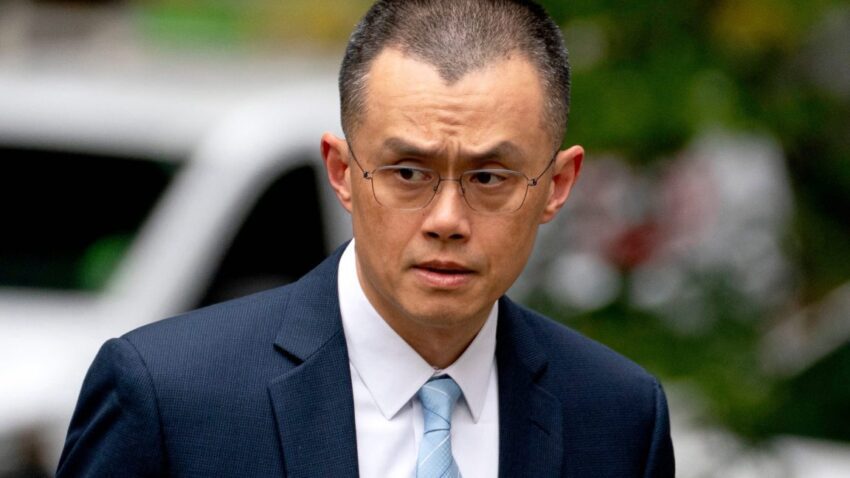
trump on why he pardoned binance ceo In a recent interview, former President Donald Trump revealed his surprising lack of familiarity with Binance founder Changpeng Zhao, despite having pardoned him just a month prior.
trump on why he pardoned binance ceo
Background on the Pardon
Changpeng Zhao, commonly known as C.Z., is the founder and former CEO of Binance, one of the largest cryptocurrency exchanges in the world. Zhao’s legal troubles began when he faced allegations of violating anti-money laundering laws. In a significant legal development, he pleaded guilty to these charges, which included accusations that his actions had caused “significant harm to U.S. national security.” The allegations suggested that Zhao’s platform had been used to facilitate the movement of funds for terrorist organizations, including Hamas.
In October 2025, President Trump issued a pardon for Zhao, a decision that raised eyebrows across various sectors, including politics, finance, and law enforcement. The pardon was met with mixed reactions, with some praising it as a move toward criminal justice reform, while others criticized it as a dangerous precedent that could undermine efforts to regulate the burgeoning cryptocurrency industry.
Trump’s Remarks on the Pardon
During a recent interview on CBS’s 60 Minutes, correspondent Norah O’Donnell confronted Trump about the rationale behind his decision to pardon Zhao. O’Donnell pointed out the serious nature of Zhao’s offenses, highlighting the government’s assertion that Zhao’s actions had endangered national security. Trump’s response was notably dismissive, stating, “Okay, are you ready? I don’t know who he is. I know he got a four-month sentence or something like that. And I heard it was a Biden witch hunt.”
This response has sparked considerable debate regarding Trump’s understanding of the implications of his pardons. Critics argue that a lack of awareness about the individuals being pardoned raises questions about the integrity of the pardon process itself. The pardon of Zhao, in particular, has been scrutinized not only for its timing but also for the broader implications it may have on the cryptocurrency landscape.
Implications for the Cryptocurrency Industry
The pardon of Changpeng Zhao comes at a time when the cryptocurrency industry is under intense scrutiny from regulators. The U.S. government has been increasingly focused on enforcing laws related to money laundering, fraud, and other illicit activities associated with cryptocurrencies. Zhao’s case is emblematic of the challenges that regulators face in attempting to rein in a rapidly evolving sector that often operates in a legal gray area.
By pardoning Zhao, Trump may have inadvertently sent a message that could embolden other individuals in the cryptocurrency space who are facing legal challenges. The pardon could be interpreted as a signal that the political landscape may be shifting in favor of more lenient treatment for those involved in the crypto industry. This could lead to a more permissive regulatory environment, which some industry advocates argue is necessary for innovation and growth.
Regulatory Reactions
Regulators and lawmakers have expressed concerns about the potential ramifications of Trump’s pardon. Some have argued that it undermines the efforts of law enforcement agencies to hold individuals accountable for financial crimes. The Securities and Exchange Commission (SEC) and the Commodity Futures Trading Commission (CFTC) have both been actively working to establish clearer guidelines for cryptocurrency operations, and a high-profile pardon like Zhao’s could complicate those efforts.
Moreover, the pardon raises questions about the accountability of cryptocurrency exchanges. As platforms that facilitate the trading of digital assets, exchanges like Binance play a crucial role in the broader financial ecosystem. If key figures within these organizations are perceived to be above the law, it could erode public trust in the entire industry.
Political Context
Trump’s decision to pardon Zhao also fits into a larger narrative surrounding his presidency and the use of executive power. Throughout his time in office, Trump frequently criticized the legal system and the actions of his political opponents, often framing them as politically motivated attacks. His reference to a “Biden witch hunt” in the context of Zhao’s case reflects this ongoing theme.
This framing has significant implications for the political discourse surrounding cryptocurrency regulation. By positioning Zhao’s legal troubles as a partisan issue, Trump may be attempting to rally his base around the idea that the government is overreaching in its efforts to regulate the crypto sector. This could have lasting effects on how future administrations approach cryptocurrency regulation and enforcement.
Public Perception and Media Coverage
The media coverage surrounding Trump’s pardon of Zhao has been extensive, with various outlets analyzing the implications of the decision from multiple angles. Public perception of the pardon is likely to be influenced by existing sentiments toward both Trump and the cryptocurrency industry. Supporters of Trump may view the pardon as a justified action against what they perceive as government overreach, while critics may see it as a troubling sign of a lack of accountability in the financial sector.
Furthermore, the media’s portrayal of Zhao and Binance has evolved over time. Initially, Zhao was celebrated as a pioneer in the cryptocurrency space, but as legal challenges mounted, the narrative shifted to one of scrutiny and concern. The pardon has the potential to alter this narrative once again, depending on how Zhao and Binance navigate the future.
Stakeholder Reactions
Reactions from various stakeholders have been mixed. Cryptocurrency advocates have largely welcomed the pardon, viewing it as a sign that the government is willing to take a more lenient approach to regulation. They argue that a more favorable regulatory environment could foster innovation and growth in the sector, allowing for the development of new technologies and financial products.
Conversely, critics from the financial and legal sectors have expressed alarm over the potential normalization of illegal activities within the cryptocurrency space. They argue that pardoning individuals like Zhao sends a dangerous message that financial crimes may go unpunished, which could ultimately harm legitimate businesses operating within the industry.
Future Implications
As the cryptocurrency landscape continues to evolve, the implications of Trump’s pardon for Zhao will likely be felt for years to come. The decision may embolden other individuals facing legal challenges in the crypto space, potentially leading to a wave of pardons or leniency for similar cases. This could create a precedent that complicates regulatory efforts and undermines the rule of law in financial markets.
Moreover, the political ramifications of the pardon could influence upcoming elections and the broader discourse surrounding cryptocurrency regulation. As both parties grapple with the implications of digital currencies, Trump’s actions may serve as a rallying point for those advocating for less stringent regulations.
Conclusion
In summary, President Trump’s pardon of Changpeng Zhao has sparked significant debate and raised important questions about the future of cryptocurrency regulation in the United States. Trump’s lack of familiarity with Zhao, as revealed during his recent interview, underscores the complexities surrounding the pardon process and its implications for the financial sector. As stakeholders continue to react to this development, the long-term effects on the cryptocurrency industry and regulatory landscape remain to be seen.
Source: Original report
Was this helpful?
Last Modified: November 4, 2025 at 1:38 am
3 views















